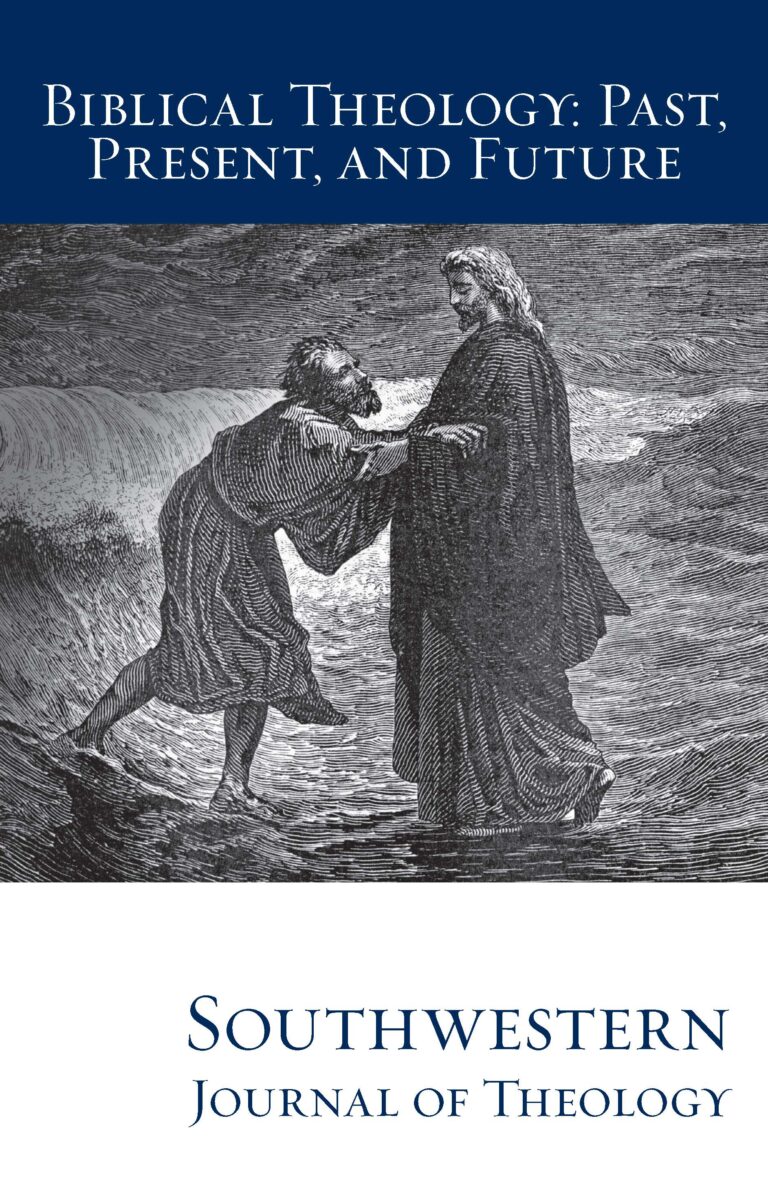
Biblical Theology: Past, Present, and Future (II)
Southwestern Journal of Theology
Volume 56, No. 1 – Fall 2013
Managing Editor: Terry L. Wilder
By James D. G. Dunn. Louisville, KY: Westminster John Knox Press, 2010. 168 pages. Softcover, $20.00.
James D. G. (Jimmy) Dunn, Lightfoot Professor of Divinity Emeritus at the University of Durham in England, is a prolific scholar in both Jesus and Pauline studies, and while he can be thought-provoking and engaging, he can also be unorthodox in his views. This short book is an example of all three of these characteristics. Dunn wrote it primarily as a response to Larry W. Hurtado’s books Lord Jesus Christ: Devotions to Jesus in Earliest Christianity (2003) and How on Earth Did Jesus Become a God? Historical Questions about Earliest Devotion to Jesus (2005) and Richard Bauckham’s God Crucified: Monotheism and Christology in the New Testament (1998) and Jesus and the God of Israel (2008). Dunn states at the outset that he substantially agrees with much of what those two writers say on this issue of early Christian worship of Jesus (4), and certainly Hurtado and Bauckham have done much research and writing in this subject area already. However, Dunn writes this present volume: (1) to focus more narrowly on the first generation of Christians, and (2) to look more at the whole picture, which includes New Testament texts which are more “controversial” and appear to answer the book’s question negatively (2-3). Thus, Dunn’s thesis is that the first generation of Christians did not worship Jesus as God or by himself; rather, they worshipped him as a means to God. So, they worshipped God through Jesus and in the power of the Spirit (6, 146-51). So, in short, Dunn’s answer to the book’s title question is an unqualified “No.” Dunn even calls the question “rather naive” (53) and “potentially misleading” (150).
Dunn is certainly convinced he proves his case, and he does make some interesting points in defining worship and in examining the Greek and Hebrew terms used for worship (7-22) as well as what practices were involved in worship (29-58). However, Dunn misses the mark because he appears to fail to believe Jesus is truly God and was worshipped as God by the first generation of believers. He really ends up with an adoptionistic type of Christology (144-46). Dunn seems more comfortable describing Jesus as the man God used than as the God-man. For instance, he minimizes the denotation and connotation of the term “Lord” used for Jesus (and the accompanying worship of him in Philippians 2:11) (104-07). There are other problems in Dunn’s perspective. It does not help his case that Dunn disbelieves parts of the Gospel of John. Sadly, this point of view is typical among modern New Testament scholars, but it is a flawed point of view. For instance, Dunn claims John the Evangelist put some sayings in Jesus’ mouth that Jesus never said, such as the “I am” statements, which Dunn claims the Synoptic Gospels would have mentioned if Jesus had actually said them (119)! Of course, this erroneous argument is an argument from silence, which is one of the weakest arguments one can make. Unfortunately, Dunn ignores one of the clearest New Testament verses on the book’s subject: when Thomas proclaimed to Jesus, “My Lord and my God” (John 20:28). Interestingly, he claims one cannot know if Jesus would have approved of anyone worshipping him (93), yet this is exactly what Thomas was doing in that statement. Another disappointment is when Dunn claims Enoch, Moses, and Elijah were “ancient, legendary or even mythical figures” (89). Well, they were ancient!
Dunn is an eminent scholar and a good, meticulous writer. He knows how to lead the reader carefully through the fruits of his research. Throughout this book he carries on a rich “dialogue” with Bauckham and Hurtado in both the text and voluminous content footnotes (e.g., 3-5, 9-11, 15-16, 22, 29). Yet, on this issue, Bauckham and Hurtado get it right and Dunn does not.





